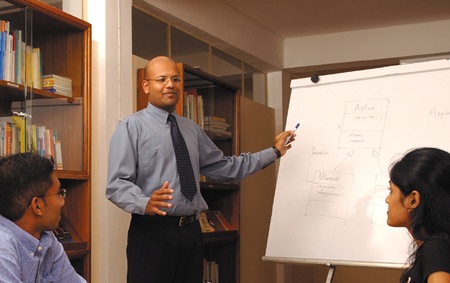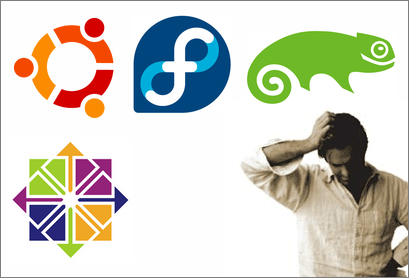
I am happy to tell you that my company, Knowledge Seven Ltd, is organising two Linux training courses in the coming weeks. Check this blog entry for more info:


I am happy to tell you that my company, Knowledge Seven Ltd, is organising two Linux training courses in the coming weeks. Check this blog entry for more info:


The other day while having dinner at a friend’s place, we had an interesting conversation about one of the core values of Web 2.0 i.e. harnessing collective intelligence. One friend argued that websites like Wikipedia and Amazon were so full of vandals (defacing pages on Wikipedia and writing bogus reviews on Amazon for example) that we should never use them to learn / decide what to buy…
Interestingly, my other friends said that they were not too sure about Amazon being unreliable (maybe because they had no choice than believing that the comments on Amazon were sincerely written as their entire buying strategy was based on that being true…) but, surely, he was right about Wikipedia which couldn’t possibly be authoritative.
I was the only one saying that Wikipedia is good enough. In fact, it’s more than good enough in the sense that if one feels a specific page is not good enough he can make it become good enough by editing it. Of course, there are vandals on Wikipedia but the website features an excellent version tracking system and, more important, more honest people than vandals.
In fact, I immediately realised that some people had a bad perception of Wikipedia because, brace yourself, it is free. Yep. Same as open source software. For some bizarre reason, some of us believe that something which is free is obligatorily not good. And, of course, what is expensive is obligatorily good.
And this is a very bad thing. Because it’s false. Remember this when doing your Christmas shopping.
Merry Christmas to you!

I have been using Linux at home for years now. I started with Redhat in 1999, moved to Fedora (Core) in 2003, had a great time with Gentoo in 2004, discovered Kubuntu in 2005 and this year I’ve moved to Ubuntu. At work, I used Redhat initially (1999) until I discovered that Centos was a free clone of Redhat Enterprise Linux and this is what I’ve been using for the past few years.
I have ordered a brand new Dell PowerEdge 840 server for Knowledge Seven Ltd and I’ll normally get it in one or two weeks. And this has started to give me massive headaches as I can’t choose what Linux distribution to run on it.
I do not want to run a Linux distribution which is not free and therefore this rules out both Redhat Enterprise Linux and SuSE Linux Enterprise Server. I’ve spent some reading reading about Ubuntu Server Edition and openSUSE:
Even though both are nice, I am somewhat reluctant to use any one of them. Ubuntu Server Edition is not yet proven and I have no experience of openSUSE. Can someone convince me to change my mind?
In the meantime, this leaves me with Fedora and Centos and I really really really can’t decide…
Fedora has a lot of features… decreasing its reliability? Centos, which is indirectly derived from a prior (and more stable) version of Fedora, is Redhat Enterprise Linux but will it satisfy a geek like me who loves to experiment?

